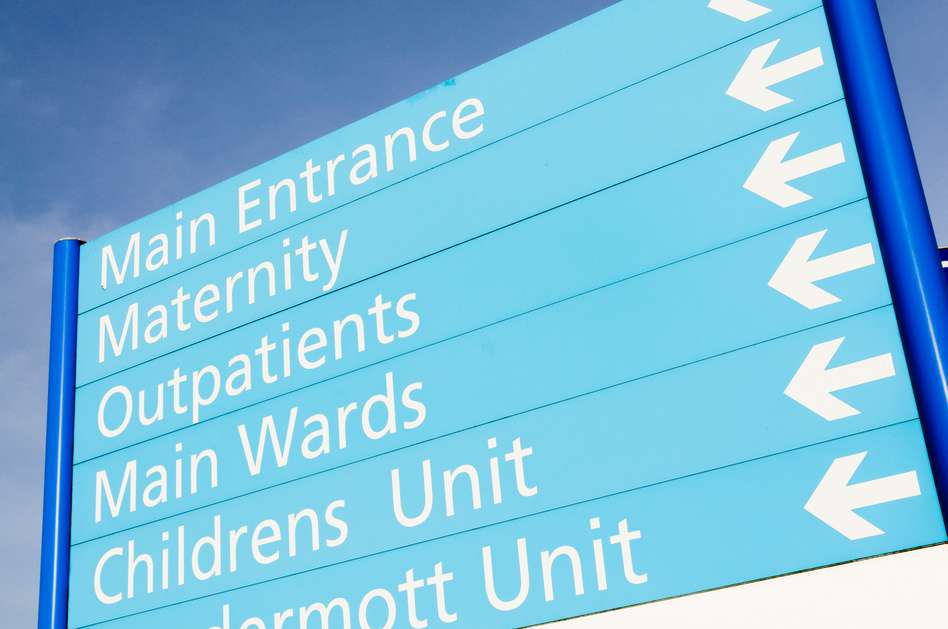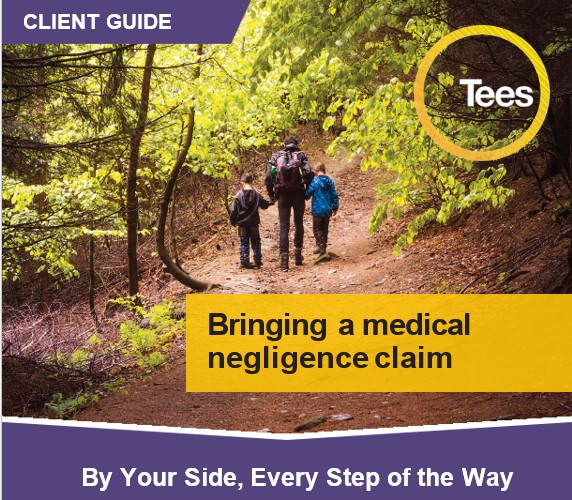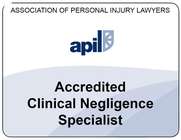medical negligence
How to make a medical negligence claim

Most medical care is safe and effective. However, mistakes and systemic errors will occasionally occur, especially where nurses and doctors are over-stretched. Fortunately, these mistakes and errors rarely cause harm, but if something does go wrong and you have been injured, you should seek the advice of a specialist medical negligence solicitor.
- What qualifies as medical negligence?
- Making a medical complaint
- Making a medical negligence claim
- Free assessment
- Will I be eligible for compensation?
- Examples of medical negligence
- How can I afford to pay legal fees to make a claim?
- No win, no fee
- Is there a time limit for making a claim?
- Who will handle my case?
- Stages of a medical negligence claim
- Valuing your claim
- When is the compensation payment made?
- What about state benefits?
- Investment Advice and Life Planning
- Court of protection and deputyship
What qualifies as medical negligence?
The fact that there may have been an error or a poor outcome does not automatically entitle you to compensation. However, if you have been injured because a doctor or other healthcare professional has not provided the proper standard of care, it may be possible to claim compensation. You should seek specialist legal advice to help you through this process - it will be almost impossible to navigate alone, without expert help.
We understand that complaining about medical treatment can feel overwhelming and distressing, but there are many good reasons for making a complaint and possibly, in addition, a claim for negligence. For example:
- it will help you understand what happened
- if you have suffered injury and financial loss, it’s important that you receive the compensation that you need to build your life back up again: to fund any additional treatment, rehabilitation or additional costs and to positively plan for the future
- patient safety can be improved when healthcare providers are made aware of what has happened.
In the vast majority of cases, the claim will not be made against an individual such as a doctor or nurse, but rather against their employer.
Here we set out the process:
Making a medical complaint
If you would like a full explanation of what has happened, an apology from the hospital or doctor concerned and assurances that any problems that might affect other patients have been addressed, you could consider:
- complaining to the doctor or hospital involved in your care and asking for an explanation
- using the formal NHS Complaints procedure to make a formal complaint
- contacting the body responsible for improving and monitoring the quality of care. In England, this is the Care Quality Commission, and/or
- writing to the professional regulatory organisation, for example, the General Medical Council (for doctors in United Kingdom) or the Nursing and Midwifery Council (for nurses and midwives in England and Wales) if there is a question about an individual doctor or other healthcare professional’s fitness to practice.
For further information, please see the AVMA Guide to Making a Complaint under the NHS Complaints Procedure.
Making a medical negligence claim
If you have suffered injury or financial loss or need compensation to help you cope with the results of what has occurred, then you should consider bringing a medical negligence claim. Below, you can read our guide to 'Bringing a medical negligence claim'.
 |
Call for a FREE initial consultation on 0800 013 1165
Free assessment
When you get in touch, your case will be assessed - free of charge - by our specialist assessor who is a medical negligence lawyer with over 40 years' experience. You will get a highly expert opinion and a helpful and responsive service. We will listen to you, understand what you want to achieve and advise you how best to proceed. We will also let you know if we think you do not have a case for compensation.
Will I be eligible for compensation?
A big part of the initial assessment we will do for you, is establishing what happened, and more specifically working out if there is likely to be a case for compensation to be paid. Compensation will only be paid if you can prove all three of the following:
- the health professional treating you owed you a duty of care. All healthcare professionals have a duty to their patients to take reasonable care when carrying out their professional skills.
- the health professional was negligent. A healthcare professional must provide an acceptable standard of care which is consistent with a responsible body of medical opinion. A healthcare professional is not negligent if other responsible healthcare professionals would have acted in the same way.
- And you suffered harm, as a result of the negligence. This is known as causation.
When you come to us, we will listen to you, obtain medical records and work out whether you have a case that has a good chance of being successful.
Examples of medical negligence
There are many different ways in which medical negligence can occur. Here are some general examples:
- a failure to diagnose your condition
- a delay in diagnosing your condition
- making the wrong diagnosis
- failing to arrange the investigations or treatment you need
- failing to warn about the risks of a particular procedure
- surgical error
- failing to recognise and act on complications
- making a mistake in the prescription, administration and dispensing of drugs.
How can I afford to pay legal fees to make a claim?
Please don’t worry about costs. There are options available which mean you don’t have to pay out any money in advance of getting compensation, or at all, if the claim is not successful. There are a range of options, including no win, no fee, which we will explain to you before you start a claim. These include:
- legal-expenses insurance
- trade union funding
- “legal aid”
- private funding
- “no win, no fee”.
No win, no fee
Most medical negligence clients choose a “no win, no fee” agreement. No Win, No Fee arrangement ensures you don’t pay any legal or associated costs unless your case is successful. If you win, most of your legal costs are paid by the Defendant. A small portion of your compensation may be used to cover legal costs not paid by the Defendant. The majority of our clients choose this option for peace of mind and affordability.
Is there a time limit for making a claim?
In England and Wales, a medical negligence claim must normally be brought within three years of the date of the accident or the date that you became aware that your injury was linked to the original accident (whichever is latest). This is known as the “date of knowledge”. The date of knowledge can be much later than the accident date.
If legal proceedings are not started in court within the three years, the case is then “time-barred” or “statute barred” as it is sometimes known, which means it cannot proceed.
There are exceptions and special rules apply for children, for adults with serious mental disabilities, for fatal cases and Human Rights Act cases. The courts do have discretionary power to allow claims which are already outside the time relevant limits to proceed, but these powers are only exercised under very limited circumstances.
Who will handle my case?
We have a large and experienced team of highly regarded specialist lawyers, with decades of experience and expertise in medical negligence cases. One of these lawyers will be your primary contact and will take responsibility for your case. This person will be your individual point of contact. Unlike many firms, we make sure that at Tees, our lawyers only look after a small number of clients at any one time – we want to be there for you when you need us. Your lawyer will work closely with you throughout your case to understand your concerns, answer your questions, support you through the harder times and celebrate the good times with you.
Stage 1: Investigating your claim
It’s important to investigate your claim thoroughly to establish how strong it is. The initial investigations can therefore take several months.
We will then prepare an initial statement based on your recollection of events.
We will then apply for a copy of all your medical records and sort and review these.
Any case that is brought must be supported by independent expert evidence. Therefore, the next step will be to instruct an independent medical expert to review your records and advise whether or not the care you received fell below an acceptable standard. Tees has contacts with a wide range of medical experts and we only work with those with the highest professional qualifications and reputation.
If your treatment was substandard, we will also need to instruct an independent medical expert to consider whether this caused, materially contributed to, or worsened your condition.
We may in addition, arrange a meeting with an experienced barrister and the medical experts to review the evidence in detail and ensure that your claim is strong enough to proceed.
Stage 2: Starting your case
The next step is to notify the defendant (for example the hospital) in a detailed “letter of claim”.
The defendant has four months to reply with their “letter of response”. This gives them the opportunity to investigate your case. They may deny that they are responsible for your injuries or they may agree that they are liable for some or all of your injuries. They may offer you compensation to settle your claim.
After we have received the letter of response, we will review your case further and advise you whether to commence formal court proceedings.
Stage 3: Commencing court proceedings
A claim is issued by sending a simple formal court document, called the claim form, to the court. This must be served on the defendant within four months of receiving their letter of response, together with:
- a statement of your claim (the “particulars of claim”), which will set out the allegations of negligence
- a “schedule of damages”, which will set out the specific financial losses incurred as a result of the alleged negligence and an estimate of the likely future losses
- a medical report on your condition and prognosis.
You will need to approve all these documents and sign a “statement of truth”, confirming that the documents are true and accurate, before we send them to the defendant.
Stage 4: Timetable
The “defence” is technically due 28 days after the particulars of claim are served. However, the defendant usually applies to the court to extend this time limit and a 1-3 month extension is usually given.
After the defence has been filed, the court sends out a questionnaire to all parties; these are known as “directions questionnaires”.
Thereafter, there will be a court hearing (called a “costs case management conference”), when the court will set down a timetable of events to progress the case to trial and, in most cases, allocate both sides a “budget” for the costs that each side is allowed to incur going forwards. Generally, the trial is scheduled to take place within 12-18 months of the claim form being issued.
The timetable generally includes:
- production of various documents relating to the case (“disclosure”).
- exchange of statements from you and all witnesses, including the health professionals responsible for your care (“exchange of factual witness evidence”).
- exchange of expert reports (“mutual exchange of expert evidence”).
- a meeting between medical experts on both sides to discuss the case and try to narrow the issues prior to trial (“experts’ meetings”). This meeting usually takes place without the lawyers present.
The timetable then allows some time for negotiation between the parties, although this may happen at any point during proceedings. There is usually at least one further conference with your barrister and experts to review your case in detail and consider the best way to proceed.
Stage 5: Trial
Most cases don’t get to this stage because the vast majority of cases are settled without any court hearing. Once both parties have assessed the evidence in detail, it is often possible to negotiate a settlement. Your case may be settled because the defendant no longer feels they are able to defend the case or proceed to trial.
If the case is brought by a child, or someone who lacks capacity to manage their own affairs, the court must approve any negotiated agreement.
Some cases do proceed to trial and it is always necessary to prepare for trial. At a trial, a judge will listen to the evidence, particularly the evidence of the independent experts, and decide whether or not your claim succeeds. The length of the trial depends on the complexity of the case.
In some cases, the court will deal with just some of the issues in the first instance. For example, the court often decides to have one hearing dealing with liability and, if this succeeds, another to deal with the amount of damages (this is known as a “split trial”).
Valuing your claim
As well as investigating whether you have a claim, we will also investigate the amount of compensation to which you would be entitled. The purpose of compensation is to return you, as far as possible, to the position that you would have been in if the medical negligence had not occurred.
In many cases, we will not fully investigate how much compensation you are likely to receive until the preliminary medical issues have been considered. However, we will always be able to provide you with a broad outline at the beginning of the case. It will be impossible for us to be more precise, because we will need to investigate how much you are entitled to and obtain evidence in support. This can take time and involve additional experts.
The amount of compensation will depend on the severity of your injury and the financial consequences of your injury and will take account of:
- your pain and suffering (“general damages”) and “loss of amenity” (which relates to your quality of life, if, for example, you’re now unable to carry out daily activities or hobbies).
- any financial losses and expenses that you have incurred as a result of your accident (“past losses”). Evidence will be required to establish these losses. It is therefore very important to keep an accurate record of these and evidence (pay slips, receipts etc) wherever possible.
- any financial losses and expenses that you will incur as a result of your accident (“future losses”).
Pain and suffering
This is an amount of money to compensate you for the pain, suffering and loss of amenity attributable to your injury. The court will consider guidelines and previous similar cases when attempting to value this part of the award.
Loss of earnings
Whether you were employed, self-employed, unemployed but looking for work; or a child at the time of your injury, you are entitled to claim for any loss of earnings you have suffered, or may in the future suffer, as a result of your injury. Amongst other things, this could include:
- loss of earnings
- any amounts repayable to your employer under your contract for employment
- any possible effect on promotion prospects
- any loss of benefits of employment such as private medical insurance, car, fuel allowance, car servicing, insurance, free/reduced food at work, concessionary fares, free board and lodgings, cheap loans, staff discounts, SAYE or share option schemes, allowances including children’s education and housing, telephone allowance and mobile phone
- any possible loss of pension
- (where self-employed) any effect on the growth of the business.
In some circumstances, you may also be entitled to claim for your partner’s loss of earnings, if he or she has had to take unpaid time off on your behalf.
Assistance from others
Whether or not you have paid for it, you can often recover compensation for those who have provided and/or will help you in the future as a result of your injury. Amongst other things, this could include:
- nursing assistance
- domestic assistance, e.g. shopping, cooking, cleaning, laundry, ironing
- additional cost of maintaining accommodation, including DIY
- gardening
- car maintenance costs.
Medical treatment and prescriptions
You may be able to recover the cost of any private specialist treatment which has been required or may be required in the future because of your injury, for example, any medical treatment, physiotherapy, occupational therapy, speech and language therapy etc.
You are also entitled to claim the cost of individual prescription fees, pre-payment prescription certificates, painkillers, bandages etc in so far as they relate to your injury.
Accommodation
It may be that as a result of your injury, you have different accommodation needs. Additional accommodation and adaptation costs, extra heating expenses, extra lighting expenses etc can all be included in your claim.
Specialist Equipment
A claim can also be made for any special equipment bought as a result of your injuries; eg wheelchairs, grabs, stair lifts etc.
Miscellaneous Costs
Other financial losses incurred as a result of your injury, can also be claimed, such as extra washing expenses, special diets, cancelled holidays, the additional costs of going on holiday, hairdressing, babysitters, telephone calls, travel expenses etc.
When is the compensation payment made?
During your case, it may be possible to obtain an interim payment of compensation from the defendant to help you purchase specific items such as a wheelchair, a car or a house. This is usually only possible if the defendant has accepted liability for your claim.
At the end of the case, compensation may either be paid as a single lump sum or as ongoing annual payments (“periodical payments”) or a combination of the two.
You may be awarded provisional damages. This is when there’s a possibility that your injury will get worse in the future, it’s possible for the court to assess the value of your injury as it stands at the time of the trial or settlement, but also make an order allowing you to come back to court if your injury gets worse. This must amount to a "serious deterioration".
What about state benefits?
If the case is successful, certain state benefits might be deducted from your compensation and refunded to the government. In addition, if you receive compensation, your entitlement to benefits now or in the future may be affected. In some cases, if may be possible to set up a Personal Injury Trust, which is a legal device, to prevent this happening. At Tees our experts can advise you on this.
Investment Advice and Life Planning
At the end of the case, you may have a large sum of money. Our expert Wealth Management Advisers are able to advise how best to invest this money to ensure that it meets your future needs and any other specific concerns that you may have.
Our specialist Private Client Team will be able to help you Make a Will and Lasting Powers of Attorney.
Court of protection and deputyship
If you have a serious mental disability and are not able to manage your affairs, an application will need to be made to the Court of Protection for a deputy to be appointed. We can assist with the court application and provide advice to the deputy. These costs will form part of the compensation sought in your claim.
Call for a FREE initial consultation on 0800 013 1165
Tees is here to help
We have many specialist lawyers who are based in:
Cambridgeshire: Cambridge
Essex: Brentwood, Chelmsford, and Saffron Walden
Hertfordshire: Bishop's Stortford and Royston
But we can help you wherever you are in England and Wales.
Chat to the Author, Janine Collier
Executive Partner, Medical Negligence, Cambridge office
Meet Janine
- Areas of expertise
- Accreditations
- Testimonials
Legal 500 UK 2025
East Anglia
Janine Collier - one of the outstanding practitioners in the country. Not only excellent on all her own cases but ensures the standards of the whole team are extremely high.
Legal 500 UK 2025
East Anglia
Janine Collier is an excellent solicitor and runs a very dedicated and efficient team.
Legal 500 UK 2025
East Anglia
Janine Collier is exceptional for her detailed factual and legal analysis of claims, the high standard of her instructions, and her sensitive client management. Her energy is remarkable.
Legal 500 UK 2025
East Anglia
Janine Collier is an extremely able and committed lawyer; apart from her skill as a litigator and negotiator, Janine is known for going the extra mile for her clients. Janine's tenacity is evident from the excellent case outcomes she achieves; even in the most complex of cases, she is unafraid to litigate if the right settlement cannot be achieved, but her negotiating skills are such that she sees the benefits of settlement where the award is at an appropriate level as this provides certainty that does not follow litigation.
Legal 500 UK 2025
East Anglia
'Janine Collier inspired confidence and put us at ease. Janine always showed great empathy, and we felt we weren't treated simply as a case but as individuals. She was in regular contact by phone/email - even out of hours when required. She built a great team of experts for our case - and regularly questioned and challenged them. She also found us a good case manager, who found us experts who could really help us - and she negotiated an advance on our settlement to fund these.
Anonymous
Cambridge
Janine was extremely compassionate and caring about my experiences. Her words have remained dear to my heart and kept me strong throughout this process. She is a remarkable lady who truly wanted the best outcome for me. Anytime I contacted her, she always explained everything thoroughly and in detail. My queries were always resolved in her presence. She has a very good heart.
Legal 500 UK 2024
East Anglia
Janine Collier is a stand-out. She would be coveted by all top firms. An excellent leader, an excellent litigator.
Legal 500 UK 2024
East Anglia
Janine Collier has been brilliant throughout our whole process, and I have felt extremely supported and able to trust that she has my son’s best interests in mind with everything she does.
Legal 500 UK 2024
East Anglia
Janine Collier is hugely able and extremely hard-working – a perfect leader of the team as well as a fantastic litigator.
Legal 500 UK 2023
'Janine Collier has an amazing reputation and quite rightly, she very quickly spotted something that wasn’t the main focus of the case but is able to zoom out and look at everything that’s going on and spot things others wouldn’t spot. You can tell she really cares and is a very dedicated person who just wants to help. The team are all caring and efficient'
A
Cambridge
'A heartfelt thank you for all you have done in preparation for and during the settlement meeting, as well as for your unfailing support along the way, in and out of hours. It is undoubtedly due to your high professionalism if the outcome today has exceeded all expectations; it will be a huge help for us going forward and we will be forever grateful'
Chambers & Partners 2022
Cambridge
'Janine Collier is renowned for her handling of delay in diagnosis, obstetric injury and surgical negligence claims. She is at the top of her game and knows clinical negligence inside and out'
Susan Hickman
Cambridge
'We consider ourselves fortunate to have been recommended to Tees by the solicitor we initially approached. We did not realise it until the case was well established that the level of professional care we were receiving was exceptional and that the experience of the individuals and the contacts they have to assist in a very complex case was the best available. We are grateful that we received a satisfactory settlement as a result of their efforts under difficult circumstances and dealing with defendants that were obstructive and disorganised. By far the greatest benefit for us however is the fact that the victim, with assistance from highly skilled experts that we would not have known about otherwise, learned to walk short distances when all other medical opinion did not consider this possible. This was their greatest achievement which is well beyond the service we expected'
The Fisher family
Janine works with empathy, understanding and compassion. She handled our mother's inquest with skill and sensitivity and guided us expertly. She kept us informed continually via email and multiple meetings and phone calls. Janine completely took the sting and the stress out of our case.







